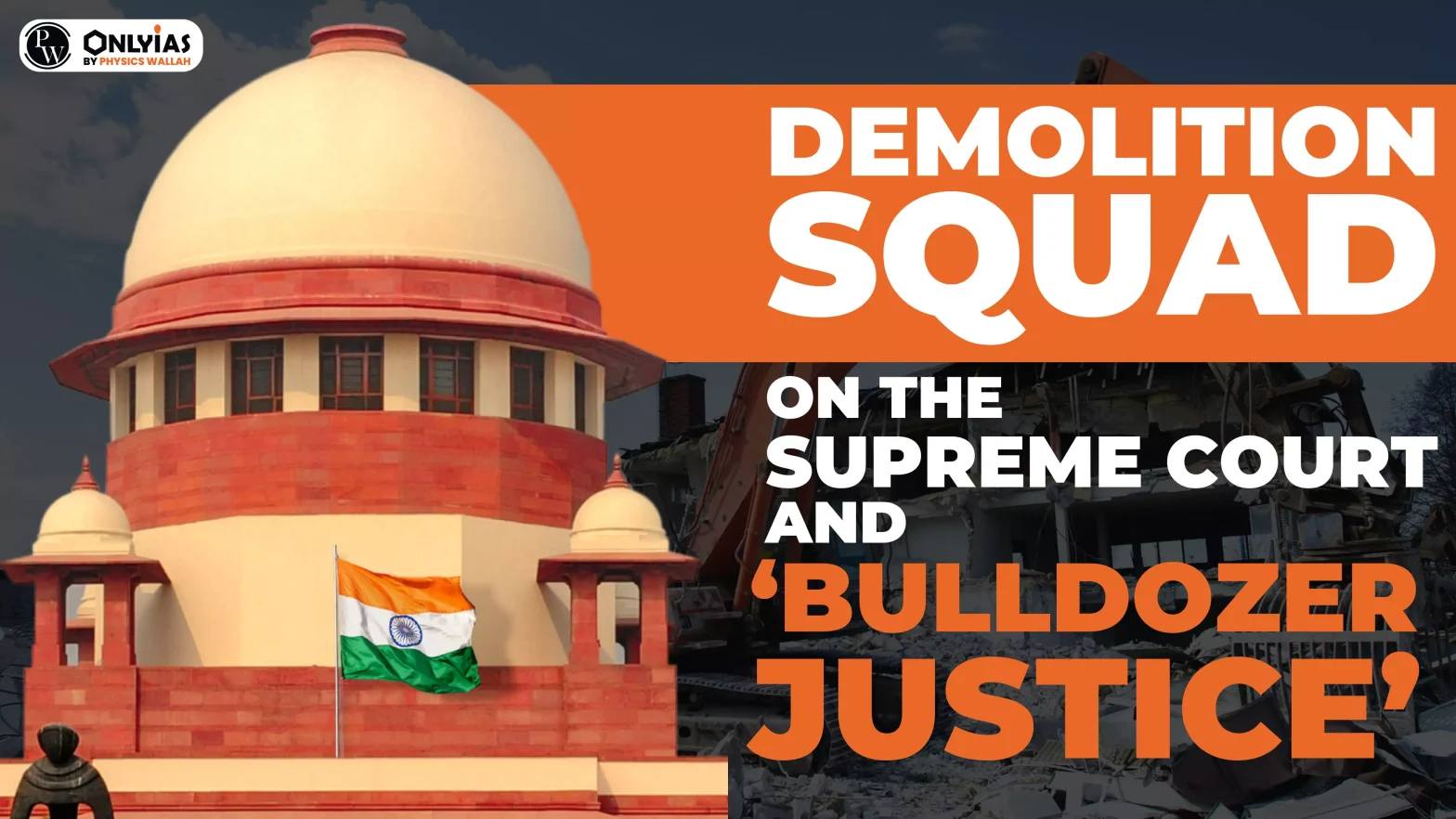The Supreme Court of India recently examined the constitutionality of demolishing suspected criminals’ homes, notably in BJP-ruled states, revealing a major constitutional concern. The employment of bulldozers as a punitive measure, particularly against Muslim populations, raises questions about constitutional rights and due process. Justices B.R. Gavai and K.V. Viswanathan has questioned whether such demolitions comply with constitutional provisions ensuring fundamental rights and legal protections.
Legality and Constitutional Provisions
- Legal and Constitutional Concerns: The Court expressed serious reservations about the constitutionality of utilising bulldozers for punitive demolitions.
- Article 21 of the Indian Constitution ensures the right to life and personal liberty, including protection from arbitrary and excessive punitive actions. These fundamental guarantees are violated when a home is demolished simply on the basis of charges and without due process.
- It was emphasised that the law prohibits the demolition of an individual’s property based solely on charges or convictions, which violates the Constitution’s ideals of fairness and justice.
- Political Symbolism and Constitutional Integrity: The Court must also consider the political symbolism involved with these demolitions, especially when they appear to disproportionately affect specific communities.
- This conduct may jeopardise the fundamental protections of equality before the law (Article 14) and protection from discrimination. Evidence reveals that demolitions are occasionally justified by backdated eviction notices, which could be seen as an intentional attempt to conceal the underlying objective behind these measures. The Court’s intervention is critical in ensuring that these activities do not violate constitutional norms and principles.
Enroll now for UPSC Online Course
Proposed Guidelines for Demolition Procedures
- Need for Uniform Guidelines: In response to these concerns, the Court has advocated establishing uniform norms for demolition operations throughout India. These guidelines are intended to guarantee that actions against unauthorised buildings comply with constitutional norms of fairness and due process.
- These standards would require proper identification of unauthorised constructions, the delivery of notices in conformity with legal provisions, and the giving of a fair hearing prior to any demolition. This method aims to comply with constitutional duties and prevent the abuse of demolition authorities.
- Implementation Challenges and Recommendations: While consistent principles are required, the Court must ensure that they do not unintentionally support conduct that violate constitutional rights.
- Digitalising eviction notifications could alleviate backdating difficulties, but applying it across multiple regions may be difficult. The Court’s principal mission is to guarantee that demolitions are justified and carried out in accordance with constitutional laws, without any appearance of political or communal bias.
Conclusion
The Supreme Court has the vital responsibility of ensuring that demolition procedures adhere to constitutional values of fairness, equality, and justice. By setting clear and universal guidelines, the Court hopes to prohibit arbitrary and politically driven measures while protecting fundamental rights. The rules should demonstrate a commitment to constitutional principles and guarantee that enforcement actions are both legal and equitable. This strategy will help to maintain the rule of law and defend the rights of those affected by demolition measures.
Check Out UPSC Modules From PW Store
![]() 4 Sep 2024
4 Sep 2024

